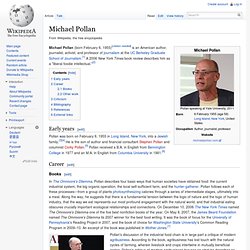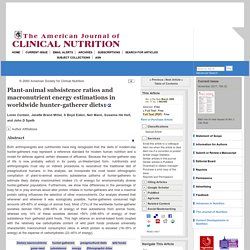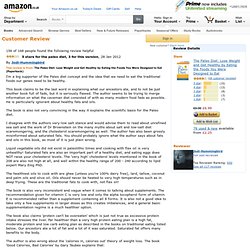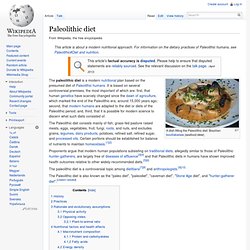

Michael Pollan. Michael Pollan (born February 6, 1955)[citation needed] is an American author, journalist, activist, and professor of journalism at the UC Berkeley Graduate School of Journalism.[1] A 2006 New York Times book review describes him as a "liberal foodie intellectual.

"[2] Early years[edit] Pollan was born on February 6, 1955 in Long Island, New York, into a Jewish family.[3][4] He is the son of author and financial consultant Stephen Pollan and columnist Corky Pollan.[5] Pollan received a B.A. in English from Bennington College in 1977 and an M.A. in English from Columbia University in 1981.[6] Career[edit] Books[edit] Pollan's book In Defense of Food: An Eater's Manifesto, released on January 1, 2008, explores the relationship with what he terms nutritionism and the Western diet, with a focus on late 20th century food advice given by the science community. In 2009, Food Rules: An Eater's Manual was published. Other work[edit] Criticism[edit] Bibliography[edit] Books Essays "Opium Made Easy". Neanderthals had knowledge of plants' healing qualities: study.
An international team of researchers, led by the Universitat Autònoma de Barcelona and the University of York, has provided the first molecular evidence that Neanderthals not only ate a range of cooked plant foods, but also understood its nutritional and medicinal qualities. Until recently Neanderthals, who disappeared between 30,000 and 24,000 years ago, were thought to be predominantly meat-eaters. However, evidence of dietary breadth is growing as more sophisticated analyses are undertaken.
Researchers from Spain, the UK and Australia combined pyrolysis gas-chromatography-mass spectrometry with morphological analysis of plant microfossils to identify material trapped in dental calculus (calcified dental plaque) from five Neanderthals from the north Spanish site of El Sidrón. Their results, published in Naturwissenschaften – The Science of Nature this week, provide another twist to the story - the first molecular evidence for medicinal plants being used by a Neanderthal individual.
What Is The Paleo Diet? Staffan Lindeberg. Paleo Diet (Paleolithic, Primal, Caveman, Stone Age, Hunter-Gatherer Diet) Plant-animal subsistence ratios and macronutrient energy estimations in worldwide hunter-gatherer diets. Both anthropologists and nutritionists have long had an interest in the nutritional patterns of the earth's less-Westernized peoples and have recognized that the diets of modern-day hunter-gatherers may represent a reference standard for modern human nutrition and a model for defense against certain “diseases of civilization” (1–6).

Although there is a vast and rich ethnographic record of many aspects of the diets of worldwide hunter-gatherers (7), there are few studies that have examined certain specific qualitative and quantitative aspects of the nutrient composition of these people's diets with modern analytic procedures (8–11). The hunter-gatherer mode of life, which sustained humanity for all (99.6%) but the last 10000 y of the ≈2.4 million y since the first appearance of our genus (Homo), is now probably extinct in its pure form (11–13). The reconstruction of preagricultural human diets by using indirect procedures has only recently been attempted. Ethnographic data analysis. Jodi-Hummingbird's review of The Paleo Diet. This review is from: The Paleo Diet: Lose Weight and Get Healthy by Eating the Foods You Were Designed to Eat (Paperback) I'm a big supporter of the Paleo diet concept and the idea that we need to eat the traditional foods our genes need to be healthy.

This book claims to be the last word in explaining what our ancestors ate, and to not be just another book full of fads, but it is seriously flawed. The author seems to be trying to merge information on what the caveman diet consisted of with as many modern food fads as possible. He is particularly ignorant about healthy fats and oils. The book is also not very convincing in the way it explains the scientific basis for the Paleo diet.
Paleolithic Diet in Medical Nutrition. Paleolithic diet. A dish fitting the Paleolithic diet: Brazilian bouillabaisse (seafood stew) The paleolithic diet is a modern nutritional plan based on the presumed diet of Paleolithic humans.

It is based on several controversial premises, the most important of which are: first, that human genetics have scarcely changed since the dawn of agriculture, which marked the end of the Paleolithic era, around 15,000 years ago; second, that modern humans are adapted to the diet or diets of the Paleolithic period; and, third, that it is possible for modern science to discern what such diets consisted of.
The Paleolithic diet consists mainly of fish, grass-fed pasture raised meats, eggs, vegetables, fruit, fungi, roots, and nuts, and excludes grains, legumes, dairy products, potatoes, refined salt, refined sugar, and processed oils. Certain portions should be established for balance of nutrients to maintain homeostasis.[1][2] History[edit] First popularized in the mid-1970s by gastroenterologist Walter L. Mark's Daily Apple. As a rule, people tend to eat whatever food they can physically access.

Transcontinental shipping now allows us to access all sorts of foods – we can eat durian in California, jasmine rice in Alaska, Spam in Hawaii, and Russian caviar in Cape Town – but for most of (pre)history, humans ate only locally available foods. So it’s no surprise to hear that hunter-gatherers, past and present, ate and eat wildly varied diets depending on their environment. The East African Hadza diet is different from the Arctic Inuit diet is different from the Paraguayan Ache diet. This is usually highlighted by critics as a counterpoint to the tenets of ancestral health.
Because apparently we’re all convinced that a single, rigid dietary prescription is the One True Diet. Keep reading…